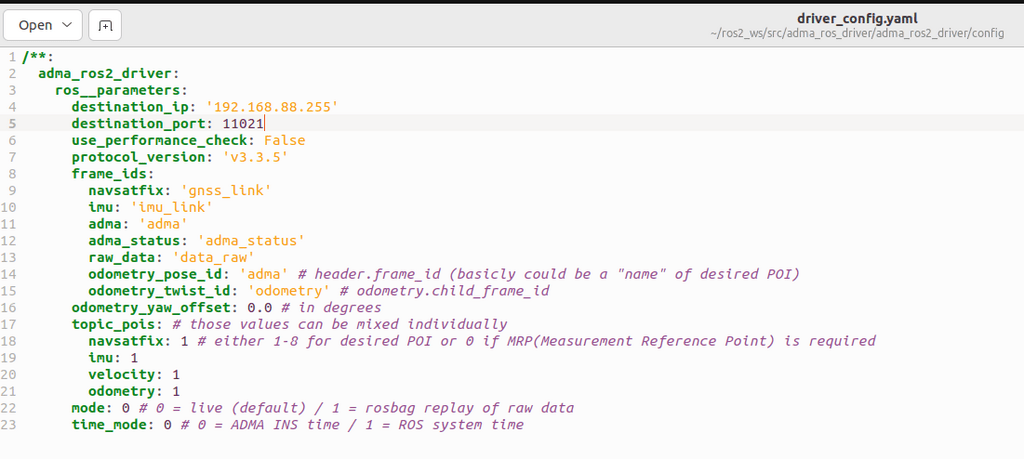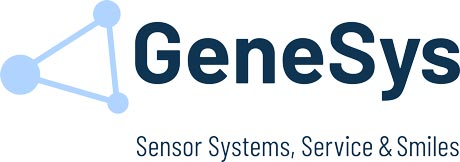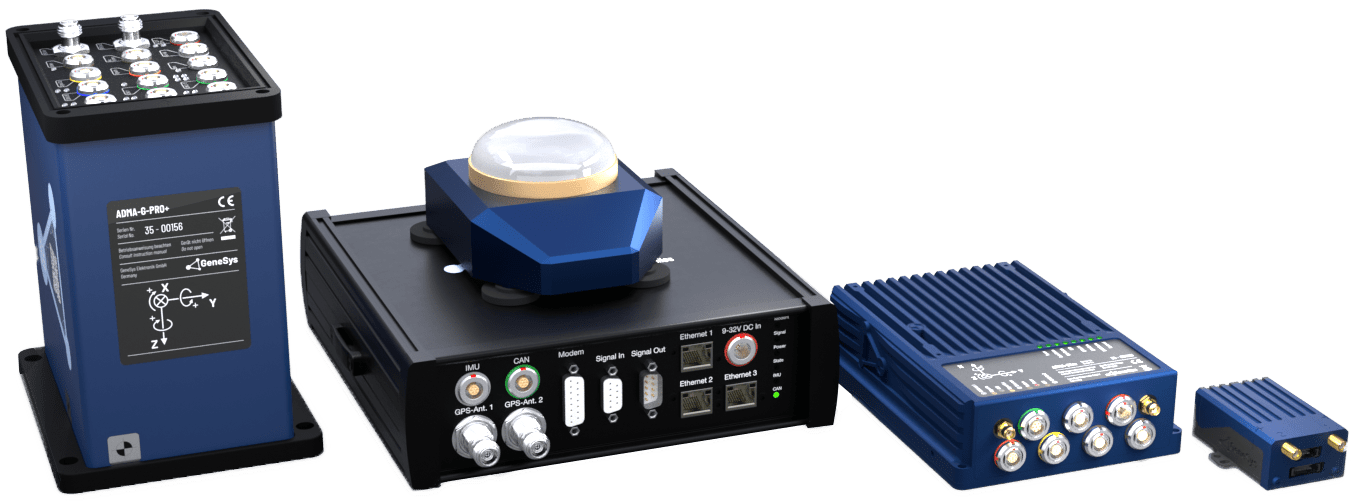Configuration
For configuring the ADMA ROS Driver the according parameters in the adma_ros2_driver/config/driver_config.yaml file have to be modified. If the workspace was built with colcon build --symlink-install, it is possible to restart the node after changing configuration parameters directly. Otherwise (built without ‚–symlink-install‘) it is necessary to rebuild the workspace to update the files. Same „linking“ rule applies to the launch.py files. The available parameters are described below.
Configuration file – driver_config.yaml

Destination ip and destination port
For the destination ip and port you have to apply the same settings as in the ADMA ADMAnet setup.
In this case it is the 192.168.88.255 (broadcast) with the destination port 11021.

Protocol version
Please also adapt the protocol version to the one used in your ADMAnet setup. The following protocol version are available:
- v3.2
- v3.3.3
- v3.3.4
- v3.3.5
- v3.3.6
Measurement point
ROS topics can be output at specific measurement points within the vehicle using ADMA Points of Interest (POIs). These POIs are defined in the ADMA web interface by setting user-defined offsets relative to the Measurement Reference Point (MRP). In the ADMA ROS Driver, the desired POI for each ROS topic can be selected by specifying the corresponding topic_pois ID in the Driver Config File (0 = MRP, 1-8 = POI 1-8). By default, ROS topics are output at POI 1.

Odometry Topic
By default, the odometry topic outputs Yaw relative to the north direction. You can configure an offset for Yaw using the odometry_yaw_offset parameter.
Replay Mode
With the mode, it is possible to switch between the online and the replay mode. The replay mode is a built in replay function for subscribing to the /adma/data_raw topic of a replayed bag file. This enables only the decoder part of the driver, that takes the rosbag data and publishes them in the standard ADMA ROS driver topics.
Header Time
With the time_mode parameter it is possible to define how the ROS header time stamps shall be defined. Either by the ADMA INS time (default) or by the ROS system time.
Launch file – adma_driver.launch.py

As default, the ADMA ROS driver is logging a .gsdb raw data file besides the published ROS topics. This makes it possible to reprocess the data in the ROS river, but also via ADMA-PP, a Post processing software tool.
Log raw data file
With the parameter log_gsdb_arg in the launch file it is possible to turn the .gsdb logging off for saving data space at long recordings.
Log ROS bag automatically
With the parameter record_ros_bag_arg it is possible to turn on automatic rosbag recording as soon as the driver gets started. recorded_topics enables you to select the ROS topics, that shall be recorded to the ROS bag, if automatic recording is activated and with rosbag_file_arg you are able to change the folder to save the recordings in.
Topic Remapping
In the array remappings, all provided ROS topics are listed combined with the naming. By changing the names the topics can be remapped.



